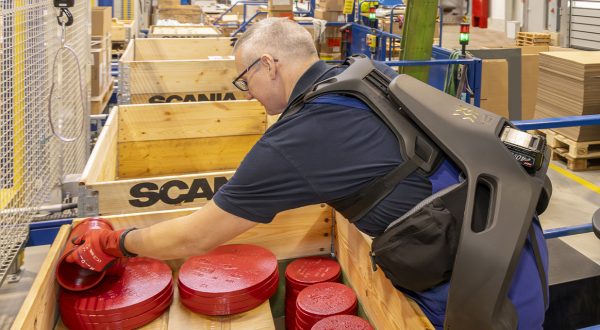Startups / large groups: taking the partnership to a new level
Reading time: 5 min
Following a learning phase, large groups and startups must now take their partnership to a new level and optimise it. There is considerable scope for further progress and best practices are emerging, says Bernhard Kirchmair, Chief Digital Officer at VINCI Energies Deutschland.
![]()
Gone are the days when large groups and startups ignored each other or considered themselves at loggerheads, when large groups looked down their noses at the erratic startup microcosm and startups were built in opposition to market leaders. Having gone through a learning period, notably via incubators, the two worlds began develop a relationship with each other four or five years ago with the development of POC (Proof of Concept) projects in which collaboration and risk sharing enabled them to forge new ties.
Today, large groups and startups have learned to work together. Better, they have learned to innovate in tandem. Large groups have become clients and investors of startups and begun taking inspiration from them to boost their agility, trust being one of the keys to the new relationship.
The results of the 2019 startup / large group relationship barometer carried out by Capgemini and Village by CA show that this type of partnership has now reached a substantially higher level of maturity: 79% of startups and 86% of large groups consider that the other party has fully grasped their culture. In addition, 73% of large groups mention user experience as the main value creation vector, ahead of image gains (55%) and Proof Of Concept implementation (55%).
Friction issues
However, the barometer does identify some remaining issues causing friction between the two. First, 84% of startups – an 18% increase since 2018 – say there is a lack of responsiveness on the part of large groups between initial contact and decision. Only 60% of large groups agree with that statement. Delayed payment is also mentioned by 80% of startups (vs. 64% in 2018).
“Operational managers within the large groups are attempting to move things forward and make collaboration with startups more efficient. But when it comes to support functions (legal, financial, purchasing, etc.), there is quite a lot of scope for improvement,” says Seddik Jamai, who is in charge of Digital Financial Services & FinTech within Capgemini Invent’s Financial Services entity.
“It is crucial that top management but also employees, especially mid-level management, understand that cooperation with startups can create value.”
Differences in perspective were also observed with respect to balance in the relationship: 73% of large groups believe the relationship is balanced, as opposed to 46% of startups (69% in 2018).
Open communication, clear-cut rules
How can the relationship be improved? “The first thing to do is ensure is open, regular and close communication between the group and the startup,” says Bernhard Kirchmair. But communication within the group is just as important, says the Chief Digital Officer at VINCI Energies Deutschland. “Companies must encourage their teams to cooperate with startups, to engage with them in social media, events, and so on.It is crucial that top management but also employees, especially mid-level management, understand that cooperation with startups can create value.”
The second step in forging a strong relationship is to “set out basic rules, from the outset, in a partnership agreement. It must address issues such as: Who decides? Who is the main contact person? And what is the degree of access to customers and to the group’s marketing activities?” says Bernhard Kirchmair.
For example, in terms of organisation, “VINCI Energies systematically appoints a mentor for each startup with which we work. The mentor opens doors for the startup within the group and serves both as a contact person and a mediator between the startup and the company.”
More broadly, it is recommended that an ad hoc team be set up within the group, ideally made up of experienced employees, to coordinate and guide the company’s activities with startups, with support from venture capitalists or “business angels”.
Striking the right balance
The big challenge is to strike the right balance between a large group that is sometimes mired in process and a startup in a hurry that takes a pragmatic approach. “The company must succeed in assessing the potential of the startup and the startup must generate a sufficient volume of revenue.”
Before embarking on any cooperation, a large group must therefore ask itself the right questions: How are startups identified? Which ones are best suited to working with the group? What type of partnership agreement should be reached? The answers to these questions, among others, can be given during a joint workshop held to identify possible projects, common solutions, procedures, etc. “But one of the main prerequisites for success is without a doubt the ability to integrate startups in actual projects requiring development a common approach to customers and the market,” says Bernhard Kirchmair.
23/07/2020


